Depending on the sheep breed, up to 7 sheep can be raised in the same space as one cow and they will still eat less than that cow. Sheep are ruminants and do not require grain. As a matter of fact, if they are not used to grain and eat a good quantity of it, they will bloat and die. Grass fed meat is far superior nutritionally to grain fed anyhow, with more of the good fats, vitamins and minerals too.
People often raise sheep that shed their winter coats, called hair sheep, to avoid having to shear the sheep, but that is counterproductive. If the right breeds are raised, as in Australia, New Zealand and South Africa, the wool also provides and income for the shepherd, not just the meat. Most sheep can be milked for a brief period of time. However; if the breeding schedule is such that the flock is bred at two different times a year, there would be sheep milk year round, fresh and healthy. Sheep milk is one of the best milks, far superior to cow's milk, and naturally rich in butterfat and naturally homogenized. A lamb needs to nurse for a minimum of 8 weeks and up to 12. The lambs can be taken from the moms at night and the ewes milked in the morning, then the lambs returned to the mothers for the day. I have not done this, but am thinking of it. I have a lovely new bunch of lambies being born and those I am keeping, I plan to halter train and try to milk next year.
The best part of the sheep is the wool though. There is nothing better for retaining body heat naturally, wicking away moisture and getting a good night's sleep on or under or both. Wool can be dyed, woven, spun, felted and the pelts can be made into stunning sheep skin rugs, well known for their therapeutic properties, especially for the young, old and infirm.
Then, there is the meat. That is the part I have the hardest time with. I watch the lambs being born, cuddle them, participate in their growth and rearing and then send them to slaughter to eat. Yes, they are raised humanely. Yes, they have wonderful lives here at the Fat Ewe Farm. But, it is so barbaric to raise an animal to eat it. Still, when there are too many little boys born, their fate will be meat. That is the way of the farm. If I do not eat them, they are sold to a market who does. Even too many little female lambs of certain breeds are sent to the market. Sad.
Still, sheep could easily be the answer to North American agriculture. Stop growing grain to feed to cows. Ridiculous! Turn the fields back to natural weedy pastures for sheep (and goats) and raise wool sheep for meat, milk and fleece. All that grain that is fed to cows is not necessary. Right?
The photos are the newborn ewe lamb this morning. She is purebred Cotswold, an old English breed of sheep with creamy white lustrous locks of wool that grow in ringlets. They are a medium sized sheep, but heavy. They lost popularity due to their slow growth rate, which means they take a full two years to mature. But they are gentle natured, even the rams and are perfect mothers, most often having twins and raising them with no problems. The fleece is sought after by hand spinners and specialty producers who love the long shiny locks. A beautiful large Cotswold fleece will bring 60 to 100 additional dollars in the shepherd's purse, well enough to justify the two year's growth rate. They are my favourite sheep breed!

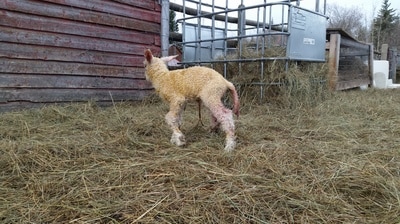
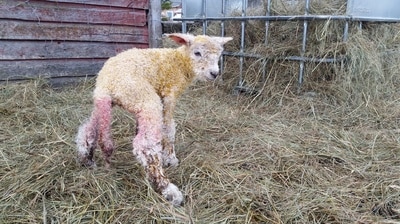
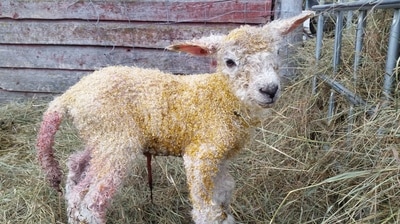
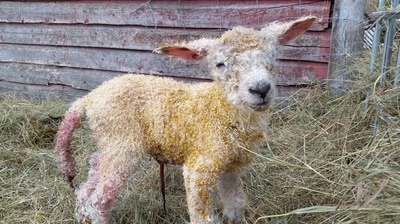
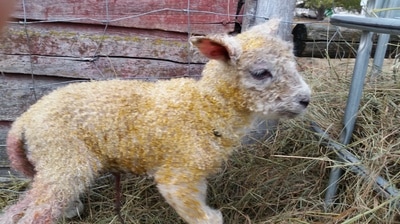
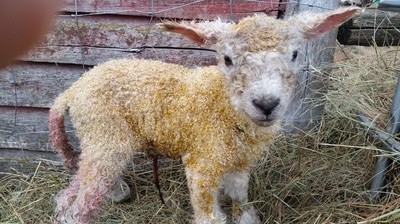
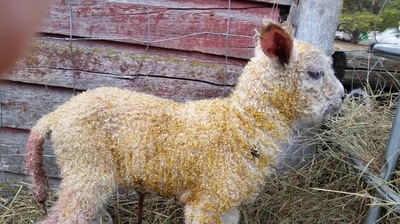
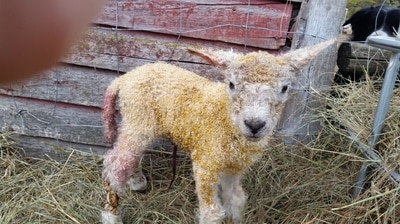
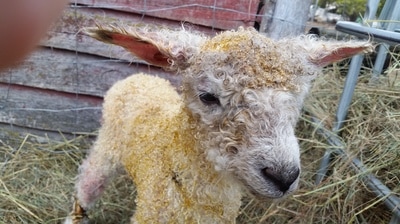
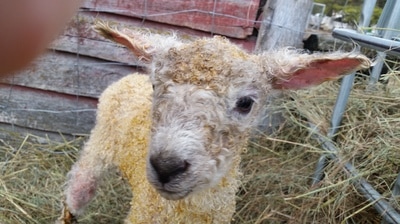
 RSS Feed
RSS Feed